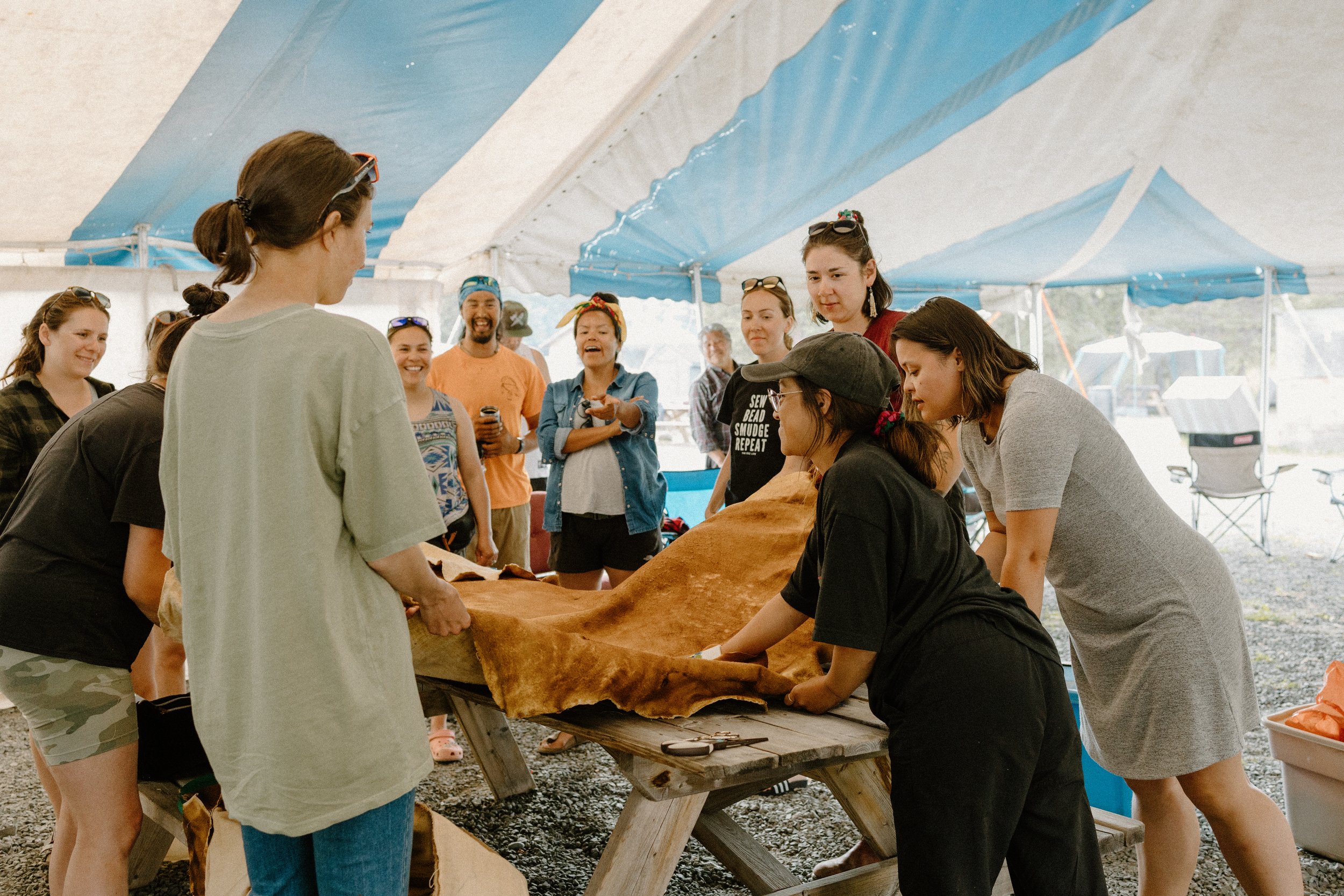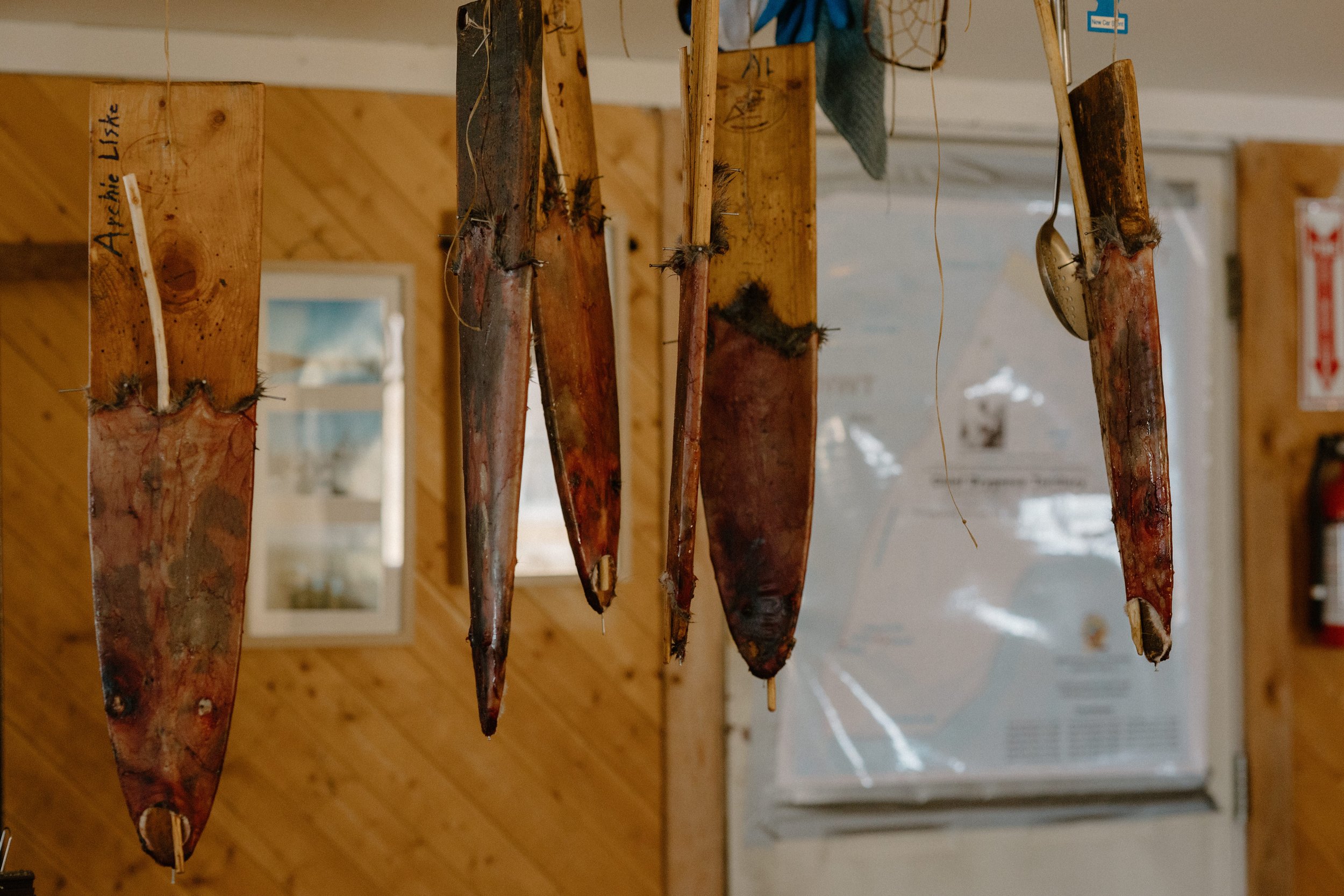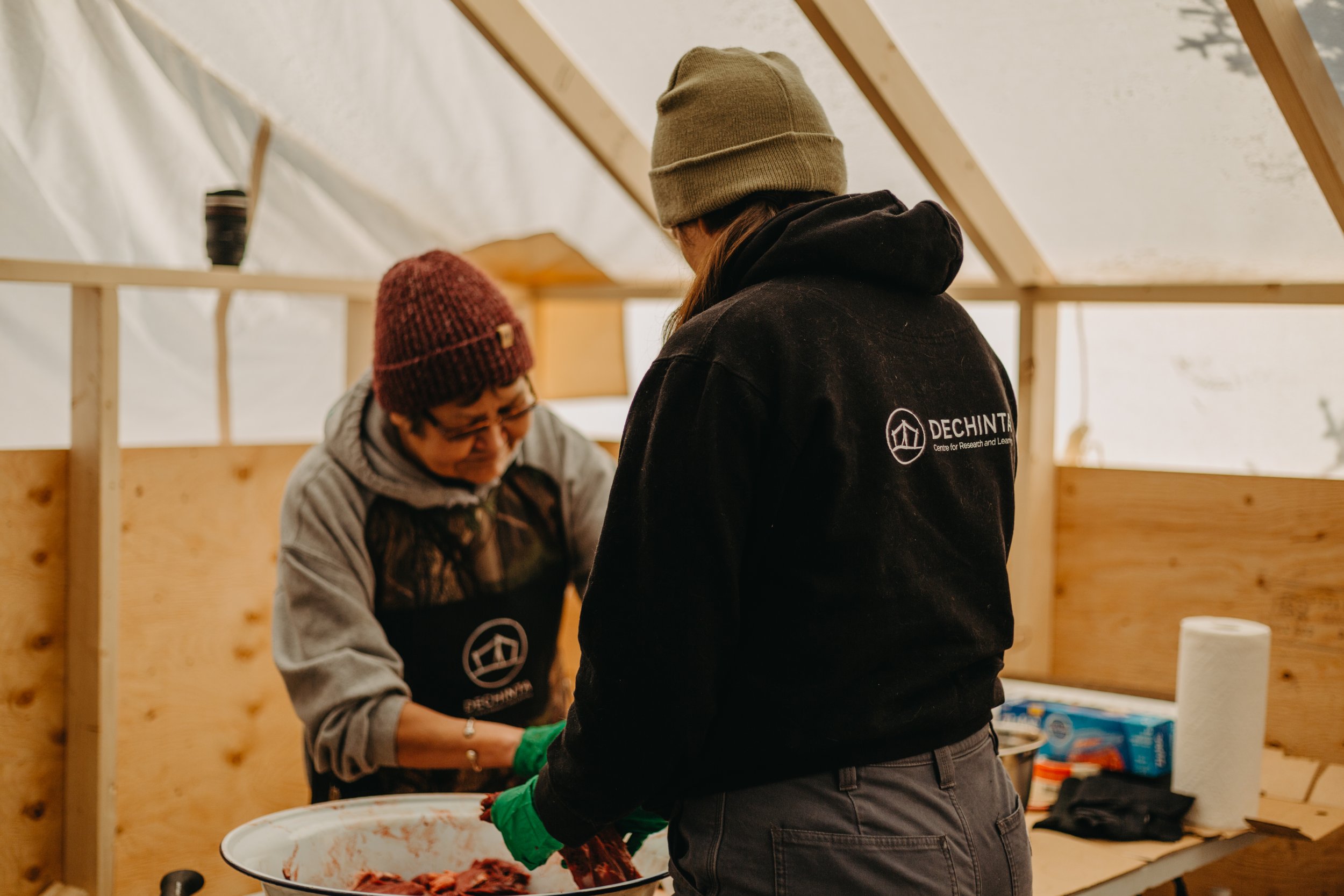
Our Education Philosophy
Land is at the core of our programs. We take creative approaches to delivering courses in various Northern regions and communities, knowing the importance that land-based education has in building a future of Dene and Inuvialuit self-determination and education. Our blended model of education innovatively combines Indigenous knowledge with academic credentials to ensure students are positioned for success on the land, in the community, in post-secondary education and in employment.

Indigenous Land-Based Pedagogy
At Dechinta, our approach to teaching and learning is rooted in decolonizing and land-based pedagogy. Many Western institutions and schools have outdoor education programs that do not view education or the land in the same way as an Indigenous land-based pedagogy does. Indigenous land-based learning emerges from Indigenous frameworks of intelligence which view the land as a mode of education and a source of knowledge. Dechinta programs are not just education delivered outdoors, it is about having our students learn from and with the land in ways that transform how they understand themselves and the world around them.
As a student, the land, environment and animals at Dechinta will have roles as your teachers. In your classes, you will encounter academic and Indigenous knowledge. You will learn from elders and Northern leaders as well as lecturers. Sometimes these worlds, voices, and knowledge will be woven together – other times they will diverge. Dene Knowledge, philosophy, ethics and theory is generated by land based practice. The land, and the complex relationships Dene have with the land, are the foundation of their intelligence and their brilliance. At Dechinta, we privilege Dene Knowledge. This sets us apart from other university experiences.
At Dechinta we provide programs that accommodate the specific needs of Indigenous students and offer various forms of support so you can be successful in your learning journey. This holistic approach to education, building from a strengths-based approach, supports both physical and mental wellbeing while increasing education outcomes for both adults and children. We have seen firsthand the impact land-based learning has on motivating Northern Indigenous youth and adults to continue on with their post-secondary education or work towards land and community-based careers.

The Importance of Indigenous Land-Based Education
The creation of land-based learning programs designed to serve Indigenous students and communities across Canada has become an increasing priority for Indigenous educators and organizations in recent years (1). Following the release of the 1996 Royal Commission on Aboriginal Peoples report, the 2007 UN Declaration on the Rights of Indigenous Peoples, and the 2015 Truth and Reconciliation Report, provincial and federal governments have emphasized the importance of providing culturally relevant curriculum for Indigenous students.
At Dechinta, we understand the significant impact of bringing people together on the land, learning with the land, and cultivating a strong relationship to the land. Dechinta directly fulfills many RCAP and UNDRIP recommendations, and several of the Truth and Reconciliation Commission’s recommendations, including: the need to improve education attainment levels and success rates, the need to develop culturally appropriate curriculum, the need to teach and protect Indigenous languages, the need to create parental and community responsibility, control, and accountability over Indigenous school systems and respecting and honouring Indigenous government relationships (2). Dechinta’s programming works towards achieving Calls to Justice, 2.3, 2.5, and 4.4, in the MMWIG’s calls to justice. Dechinta’s programming has been designed to reduce the barriers that Indigenous people face when accessing post-secondary education. Dechinta emphasizes curriculum designed to ensure that all Indigenous women, girls and 2SLGBTQQIA+ people are provided with safe, no-barrier, permanent, and meaningful access to their cultures and languages in order to restore, reclaim, and revitalize their cultures and identities. In addition, Dechinta’s mandate and programming are aligned with commitments made in the Arctic Policy Framework, including Goals 1, 3, 4, 5 and 8. Dechinta brings the policy recommendations of these reports to life through programs that empower and support Northern Indigenous practices of being and doing that build alternative Dene worlds in the here and now.
Dechinta programming is reflective of best practices on Indigenous education, Indigenous self-determination, and Indigenous politics. Our organization is rooted in a connection to the land (3) and local ways of knowing and understanding (4). We are able to achieve the outcomes that we do by centering Dene laws, values, and protocols in all of our work. We take a multigenerational approach to learning (5), provide a holistic and embodied approach to education (6), centre Indigenous pedagogy in our programs (7), maintain strong and reciprocal community relationships (8), and prioritize the inclusion of local elders and knowledge holders in all of our work (9). This is critical to our success as an organization and allows Dechinta to positively impact our staff, students, participants, children, and communities.
Our impact is far-reaching and significant. Indigenous land-based education is not just another form of ‘outdoor education’ —it is a critical component to nation-building, political and cultural resurgence, decolonization, and addressing gender-based violence. This report demonstrates how our students, staff and community members learn more than just land-based skills when attending Dechinta programs. They learn community governance (10), Dene ethics and laws (11), protocols and practices of harvesting (12), land stewardship (13), leadership skills (14), history and stories (15), language (16), confidence and pride around identity (17), and cultural knowledge and practices (18). These outcomes are cited in the field as key indicators of success and are evidenced to be key components to larger projects of fostering cultural revitalization and self-determination (19), improving health and wellness outcomes (20), generating food security (21), and addressing climate change (22).


